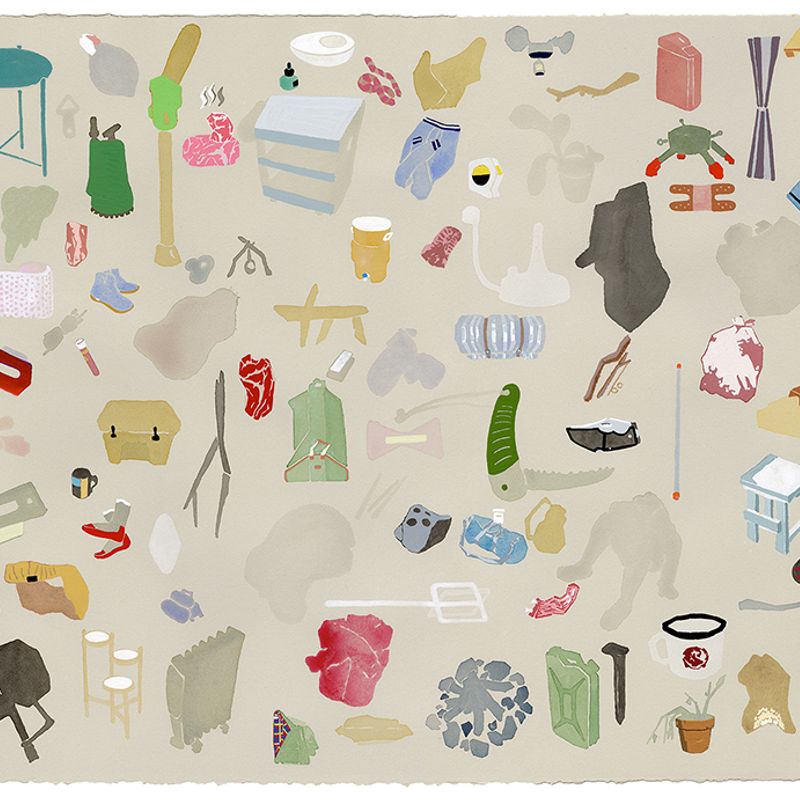Tell Me How You Got Here
by Emily FranklinAfrican Gray Parrot Returns to Owners After Four Years
—Independent UK
I was not the first to call you
mine. You came to us
British, with only three words:
blimey, matey, persimmon—
all from your original owners, thieves
and animal smugglers, tough accents
mimicked so when you cooed blimey
you appeared the pirate-ship
version of yourself. And persimmon?
Who knows how animals learn
anything, not least about fruit
we could not afford, searched out
at the market, found slippery piles
at DeMarco’s but bought cheaper
grapes instead. Perhaps you’d once lived
with green grocers? At night we guessed
your previous lives, your unknown age,
brushed your beak with a new toothbrush
as you pecked at the packaging. Matey. Matey.
Blimey! Your morning greeting,
Followed by persimmon, persimmon,
persimmon, persimmon—four times each day
for four years until that August,
quiet as milk, heat shafting into our kitchen.
No words from you, only discarded
feathers, a split grape, as though
you’d bolted and left everything.
We left the feathers and grape in place
the way parents who lose children
keep their rooms intact. Just in case. What if.
But nothing. Each morning, listening:
Matey, blimey, persimmon. Those gaping
words a lullaby or prayer. And then:
four years. We moved on. Bought a beast
of a dog, head big as a toaster oven, solid
slack-mouthed, but quiet. No words from him. Not
even when, on the fire escape, you appeared—
talons around the railing, head cocked.
Oh, disbelief. How? But the ankle band
(the Brits had done it) was proof.
Here, a grape. Here, a persimmon
we could now afford. Silence from you.
No London accent. Blimey! I tried,
brushed your beak, rested my hand
on the dog’s head, my mouth open
in encouragement. Matey? Persimmon,
you remember? Persimmon?
Your eyes were bright as buttons.
Hola. Hola. ¿Que hora es?
Our parrot returned to us
speaking Spanish, we told the vet.
What if your love returns yet
flaunts its adventures right there—
singing, strutting to bolero. What
had we missed? Caqui, he sang, Caqui.
Just what did he want? To be
recognized even though our language
was gone? What had he witnessed
beyond our kitchen? Caqui? Who is Caqui?
And did the bird miss Caqui? I asked
my husband, What if we are not enough?
But he came back. How fun could the outside
world have been if he came back?
What if he’s back by accident? I asked.
My husband offered, What if
he never meant to leave? I offered
grapes, called out Matey, again, just to see
if you remembered. Brushed your beak. Caqui.
I could see your new lives in your
silver-eyed face. This is consolation,
someone coming home to you.
Caqui caqui caqui, you said, so I joined,
both of us cooing aloud. Then I looked it up,
needed to know. Caqui. You left,
returned, feathers dropped,
replaced with the same feathers—
changed or not. Engulfed, summoned
by the world. Caqui is persimmon in Spanish.
Tell me how you got here.
Tell me how long you will stay.

